BBC 'needs to be more accountable to audiences'
- Published

War and Peace was a BBC Wales production but not enough network drama and comedy reflected modern Wales, the ACW said
The BBC should be more accountable to its Welsh audiences, according to the body that represents them.
In its final annual review of BBC Wales output, Audience Council Wales (ACW) said: "The BBC's accountability to audiences in the UK nations should be much more transparent and prominent".
It also said there was a "paucity of portrayal of Wales" in network BBC TV and radio output.
The comments appear as part of the BBC Trust's annual report.
Rhodri Talfan Davies, Director for BBC Wales, said BBC Wales would "relish" the challenge of ensuring more Welsh stories are heard across Wales and the rest of the UK.
The ACW report - its final one with changes to the BBC structure due at the end of 2016 - said BBC Wales "continued to make an extraordinary contribution" to the corporation's network output, including War and Peace and Sherlock.
BBC Wales Director Rhodri Talfan Davies is hopeful for the future
But Elan Closs Stephens, BBC National Trustee for Wales and ACW chairwoman, said in her preface to the report that the message from Welsh audiences was "very clear" in that "they want the BBC to do more to reflect modern Wales and the lives of its people".
"As we come to the end of the current Charter, and look ahead to the BBC of the next decade, that is a challenge the BBC must meet," she said.
The report's highlights:
Among strengths are that BBC TV and radio perform better in Wales than in any of the other UK nations, although it reports a drop in weekly reach in both.
Weaknesses included a "paucity of portrayal of Wales" in network TV and radio output, and particularly in drama and comedy.
Radio Wales and Radio Cymru had "again lost ground" in 2015/16 with lower reach and share for both stations.
While BBC online weekly unique browsers continued to be stable, it was not compensating for the overall decline in reach of BBC radio and TV services.
"Continued pressure" on BBC Wales' non-news TV programmes, which the council considers could be "directly related to increasing budgetary pressures". It notes that hardly any regional drama and comedy programmes have been produced.
BBC will not close TV News Channel
It believes if the long-term future of broadcasting is online, the BBC must support the audience move in that direction.
"Given poor digital infrastructure in some areas of Wales, this is a particular concern for the Audience Council," the report said.
Three in five people (62%) in Wales feel the TV licence fee offers value for money, while more than four in five people in Wales would miss the BBC if it was not there (83%).
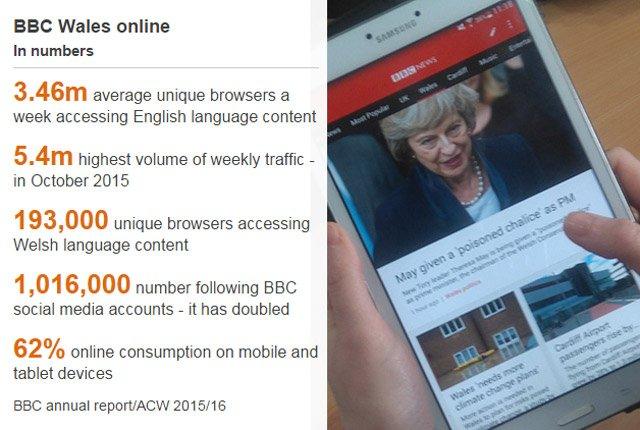
Meanwhile, BBC Wales' management review for 2015-2016, also published on Tuesday, found mobile devices accounted for two thirds of online consumption over the past year.
The number of people following BBC Wales accounts on social media has doubled to more than a million.
In the week Wales qualified for Euro 2016, BBC Wales Sport on Facebook attracted 3.8m views.
But there was a further decline in BBC Wales' weekly TV audience for English language programmes.
'Accelerate'
After a fall of 70,000 to the end of last year, the figure declined by a further 30,000 to 870,000 in 2015-2016.
The weekly audience for the corporation's programmes on S4C fell from 131,000 in 2014-2015 to 113,000 in 2015-2016.
Radio audiences have also declined.
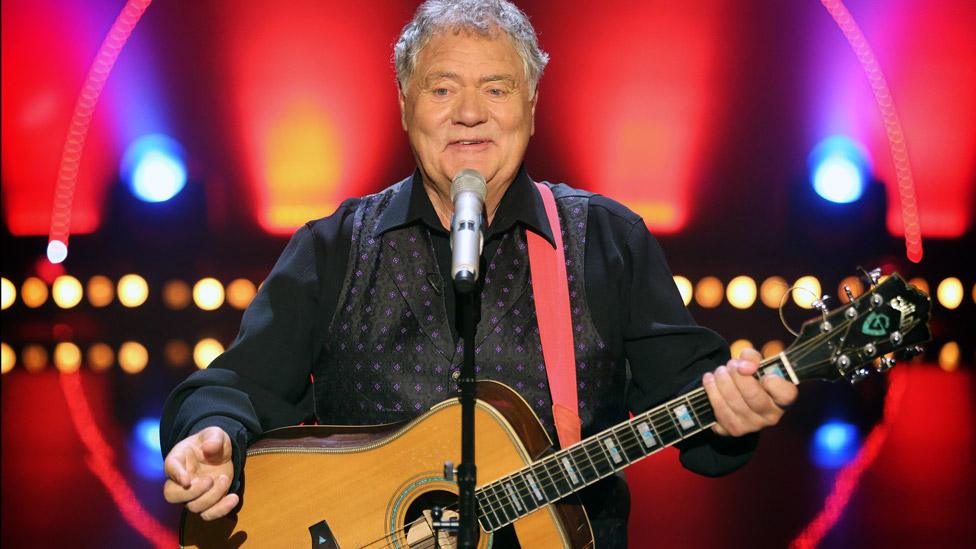
Max Boyce's programme, Max's World Cup Warm-Up, attracted nearly a third of a million viewers
Max's World Cup Warm-Up, starring Welsh entertainer Max Boyce, was the most popular English language TV series on BBC Wales, attracting 322,000 viewers.
Clwb Rygbi on S4C was the best performing Welsh language series with an audience of 48,000.
Responding to the review, Mr Talfan Davies said: "I'd like to thank everyone who has contributed to the BBC's ongoing success in Wales over the past year.
"I believe Wales is one of Europe's most exciting creative communities and the review rightly celebrates the achievements of so many talented individuals and teams inside and outside the BBC.
"It is also gratifying to see the progress we are making in serving our audiences on mobile devices, and we are determined to accelerate our innovation in this area."
- Published12 July 2016
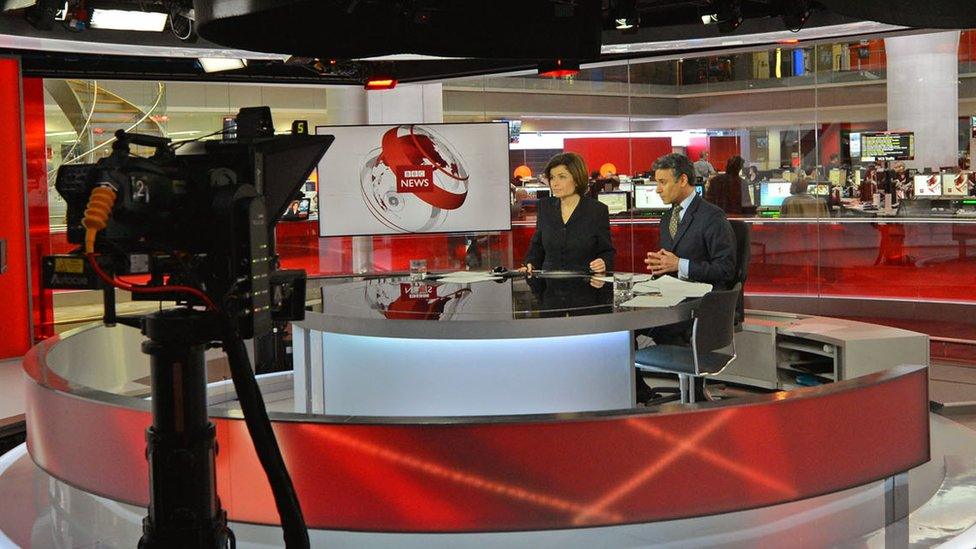
- Published11 July 2016
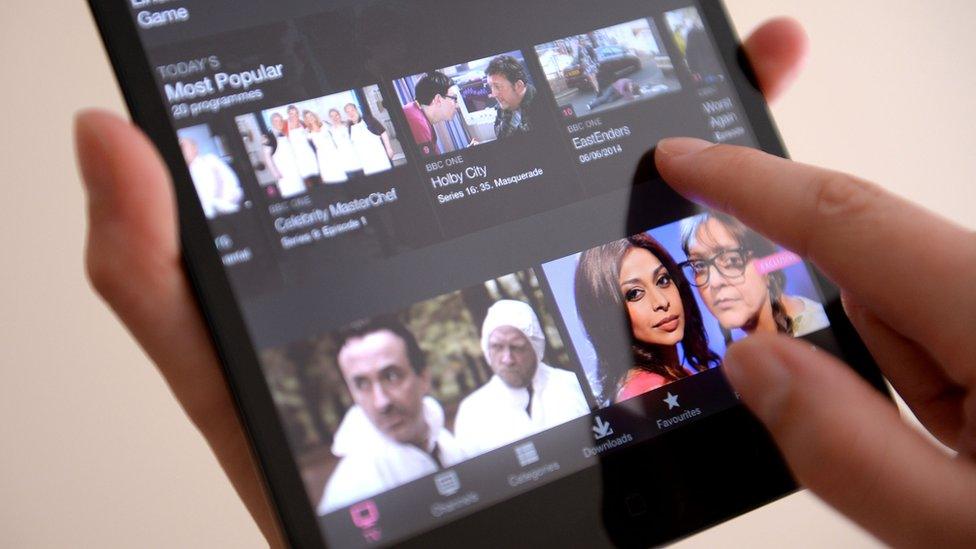
- Published14 July 2015
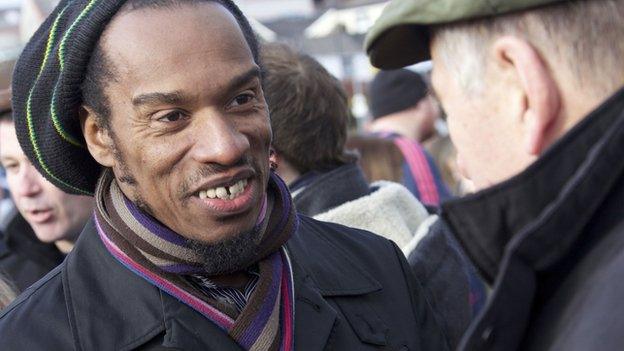
- Published14 July 2015
